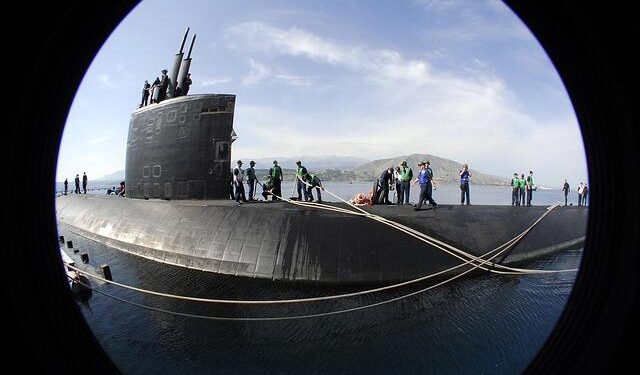As Greece navigates a complex geopolitical landscape, the competing interests of the United States and China are becoming increasingly pronounced within the Mediterranean nation. This article explores how Washington and Beijing are vying for influence in Greece through economic investments, strategic partnerships, and diplomatic engagements. Against the backdrop of regional security concerns and Greece’s pivotal location, the evolving dynamics between these global powers offer insights into the broader shifts shaping international relations in Southeast Europe.
US and China Compete for Strategic Influence in Greece’s Economic Landscape
Greece has become a pivotal arena where Washington and Beijing vie for economic leverage, each deploying distinct strategies to secure influence over the country’s vital sectors. The United States is strengthening military ties and supporting infrastructure projects linked to NATO interests, while China focuses on expanding its Belt and Road Initiative footprint through major investments in ports, energy, and telecommunications. These dual ambitions have triggered a nuanced balancing act for Greece, navigating alignment with Western alliances while capitalizing on Chinese capital inflows.
Key areas of competition include:
- Port development – notably the Port of Piraeus, operated by China’s COSCO Shipping.
- Energy infrastructure – with U.S.-backed renewable projects competing against Chinese investments in natural gas and transmission grids.
- Technology and digital economy initiatives – where 5G rollout and telecom partnerships have become increasingly politicized.
| Sector | US Influence | Chinese Influence |
|---|---|---|
| Ports | Strategic NATO logistics | Major ownership and operations |
| Energy | Renewables & LNG projects | Pipeline & grid investments |
| Telecom | Security-first partnerships | Rapid infrastructure expansion |
Analyzing the Impact of American and Chinese Investments on Greek Infrastructure and Trade
American and Chinese investments have become pivotal forces shaping Greece’s infrastructure and trade sectors, each reflecting distinct strategic priorities. US capital primarily targets energy projects, telecommunications, and tech startups, aiming to bolster Greece as a regional hub within the transatlantic economic framework. Meanwhile, China’s Belt and Road Initiative (BRI) fuels extensive investments in port development, logistics, and transportation networks, notably the expansion of the Port of Piraeus-now one of Europe’s busiest maritime gateways. This infusion of capital from both nations not only strengthens Greece’s domestic capabilities but also recalibrates geopolitical dynamics in the Eastern Mediterranean.
Key areas of investment include:
- Energy Infrastructure: US involvement in renewable energy and natural gas pipelines.
- Port and Logistics Expansion: Chinese-backed upgrades enhancing cargo throughput capacity.
- Technology and Innovation: US venture capital in Greek startups advancing digital transformation.
- Transportation Links: China’s focus on rail and highway projects improving regional connectivity.
| Investment Focus | American Strategy | Chinese Strategy |
|---|---|---|
| Port Development | Support for modernization initiatives | Major expansion & operational control (Piraeus) |
| Energy | Renewables and LNG infrastructure | Limited, mostly state-owned sector interest |
| Trade Facilitation | Digital customs and logistics tech | Physical infrastructure and rail links |
Policy Recommendations for Balancing Geopolitical Interests in Greece’s Foreign Relations
To navigate the complex geopolitical landscape shaped by the US and China, Greece must adopt a strategic approach that safeguards its national interests while fostering diverse partnerships. Prioritizing transparent diplomatic engagement and multilateral cooperation can help Athens leverage its geographic and economic potential without becoming overly dependent on either power. Establishing clear frameworks for foreign investment, particularly in critical sectors such as energy and infrastructure, will ensure sustainable growth and security.
Furthermore, maintaining a balanced posture requires Greece to:
- Strengthen ties with the European Union as a cornerstone of stability and policy coordination
- Encourage innovation and technology transfers that align with national development plans
- Implement robust risk assessment protocols to evaluate geopolitical implications of major projects
- Promote regional dialogue with neighboring countries to mitigate tensions influenced by external powers
| Policy Area | Focus | Expected Outcome | ||||||||||||
|---|---|---|---|---|---|---|---|---|---|---|---|---|---|---|
| Energy Security | Diversify supply sources | Reduced vulnerability | ||||||||||||
| Investment Oversight | Enhance regulatory frameworks | Balanced economic partnerships | ||||||||||||
| Diplomatic Strategy | Multilateral engagements |
If you want, I can help you further develop the text, add recommendations, or assist with formatting for your post! In RetrospectAs Greece continues to navigate its strategic position between East and West, the influence exerted by both the United States and China will remain a critical factor shaping its economic and geopolitical landscape. With Washington emphasizing security and traditional alliances, and Beijing advancing infrastructure investments and expanded trade ties, Athens stands at a complex crossroads. How Greece balances these competing interests will not only define its own future but also impact broader regional dynamics in the years to come. ADVERTISEMENT |
















